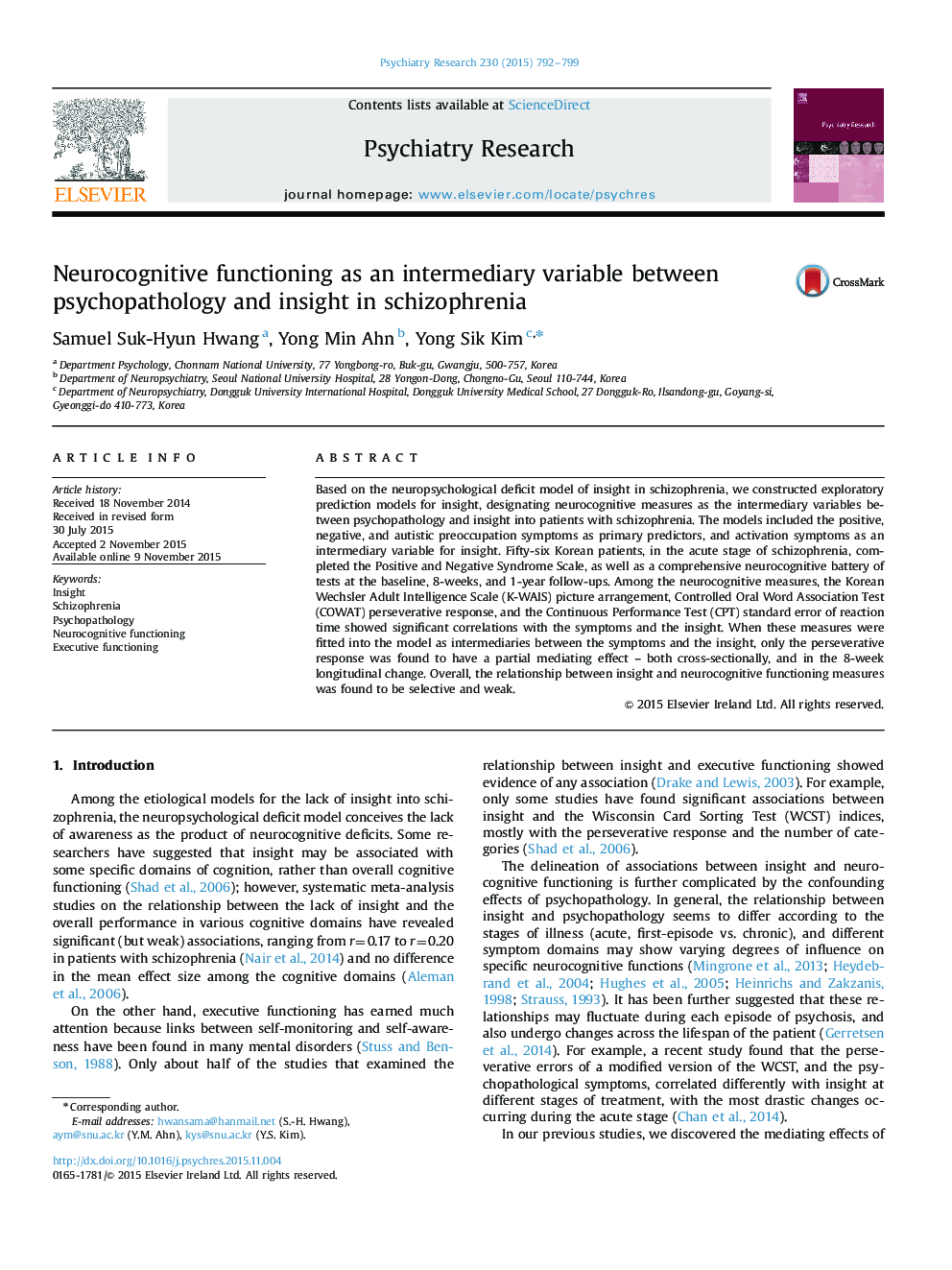| Article ID | Journal | Published Year | Pages | File Type |
|---|---|---|---|---|
| 6813702 | Psychiatry Research | 2015 | 8 Pages |
Abstract
Based on the neuropsychological deficit model of insight in schizophrenia, we constructed exploratory prediction models for insight, designating neurocognitive measures as the intermediary variables between psychopathology and insight into patients with schizophrenia. The models included the positive, negative, and autistic preoccupation symptoms as primary predictors, and activation symptoms as an intermediary variable for insight. Fifty-six Korean patients, in the acute stage of schizophrenia, completed the Positive and Negative Syndrome Scale, as well as a comprehensive neurocognitive battery of tests at the baseline, 8-weeks, and 1-year follow-ups. Among the neurocognitive measures, the Korean Wechsler Adult Intelligence Scale (K-WAIS) picture arrangement, Controlled Oral Word Association Test (COWAT) perseverative response, and the Continuous Performance Test (CPT) standard error of reaction time showed significant correlations with the symptoms and the insight. When these measures were fitted into the model as intermediaries between the symptoms and the insight, only the perseverative response was found to have a partial mediating effect - both cross-sectionally, and in the 8-week longitudinal change. Overall, the relationship between insight and neurocognitive functioning measures was found to be selective and weak.
Related Topics
Life Sciences
Neuroscience
Biological Psychiatry
Authors
Samuel Suk-Hyun Hwang, Yong Min Ahn, Yong Sik Kim,
